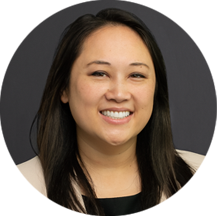What are the requirements of Cancellation of Removal for Certain Nonpermanent Residents?
Certain nonpermanent residents may be eligible to apply for relief in removal proceedings if they meet the following requirements: (1) the person has maintained continuous physical presence in the United States for ten years, (2) the person has been a person of good moral character during that same period of time, (3) the person has not been convicted of certain criminal offenses, (4) the person’s removal would result in exceptional and extremely unusual hardship on the individual’s U.S. citizen or lawful permanent residence spouse, parent, or child, and (5) the person merits a favorable exercise of discretion.
What are the requirements of Cancellation of Removal for Certain Nonpermanent Residents?
Certain nonpermanent residents may be eligible to apply for relief in removal proceedings if they meet the following requirements: (1) the person has maintained continuous physical presence in the United States for ten years, (2) the person has been a person of good moral character during that same period of time, (3) the person has not been convicted of certain criminal offenses, (4) the person’s removal would result in exceptional and extremely unusual hardship on the individual’s U.S. citizen or lawful permanent residence spouse, parent, or child, and (5) the person merits a favorable exercise of discretion.
How do I apply for this type of relief?
Cancellation of removal cannot be applied for affirmatively. This means that you may not submit an application to USCIS to resolve your immigration status. Instead, this type of process can only be filed defensively in court, meaning that until the U.S. government decides to initiate a case to start the process of deporting you from the United States, you would not be eligible to apply for this process.
How do I demonstrate eligibility?
Most often, an individual already in removal proceedings, would apply by completing the application with all necessary information, as well as provide supporting documents to show the individual meets each prong of this type of relief.
These types of applications for relief are traditionally won or lost based on the hardship determination. In other words, most applicants are able to demonstrate ten years of physical presence and good moral character. A favorable hardship determination would normally be based upon evidence of medical condition of qualifying relative(s) if the applicant is forced to return to their home country. And, if the qualifying relative were to go with them, it would need to be shown that there is a lack of appropriate medical care in the applicant’s home country. Evidence of the foregoing would normally include: medical records of the qualifying relative(s); psychological evaluations of the qualifying relative(s); dependency of the qualifying relative on the applicant; the future prospects of the qualifying relative if the person’s case is denied and he or she is removed from the United States; and country conditions reports from the United States Department of State.
What happens if the immigration judge approves my case?
If the immigration judge determines that you meet all the requirements of this form of relief, then you will be able to stay in the U.S and you will be granted lawful permanent residency. While the application is pending, you are eligible to apply for work authorization. There is an annual cap of 4,000 visas available each year. Therefore, if the cap is reached, a decision on pending application must be reserved until a visa becomes available in years afterward, creating a backlog of approvable cases.
Wilner & O’Reilly is a multi-state law firm exclusively dedicated to the practice of immigration law. During these uncertain times, we at Wilner & O’Reilly are closely monitoring developments related to COVID-19 so that we can provide individuals with the up-to-date immigration information they need. For individualized advice on your immigration situation, please feel free to contact us. We offer free consultations at our offices in Orange, Riverside, Fresno, Sacramento, and San Francisco, California; Salt Lake City and Orem, Utah; and Boise, Idaho.
ABOUT AUTHOR(S)
CRYSTAL CORTEZ- ASSOCIATE ATTORNEY

Crystal Cortez is an associate attorney with the Sacramento office of Wilner & O’Reilly, APLC. Ms. Cortez earned her Juris doctorate at Atlanta’s John Marshall Law School and is admitted to the Georgia bar. She is licensed to practice immigration throughout the United States. She has experience in representing clients on family-based immigration cases as well as removal defense in immigration court.
RICHARD WILNER – FOUNDING PARTNER

Richard M. Wilner is a founding member of Wilner & O’Reilly, APLC and is Board Certified by the State Bar of California as a Specialist in Immigration and Nationality Law. He is admitted to practice law in the State of California and before the U.S. District Courts for the Central, Northern and Southern Districts of California, the Northern District of Texas, the U.S. Court of Appeals for the Ninth Circuit and the U.S. Supreme Court.Mr. Wilner has received the coveted Martindale-Hubbell AV Rating, the highest legal and ethical rating that one can receive from one’s peers in the legal community. Similarly, he has been awarded the title of Super Lawyer from 2007 to the present. He is best known for his work in advising Fortune 500 companies, middle and small market businesses, entrepreneurs and foreign nationals of extraordinary ability in athletics, arts, and sciences in the complex area of U.S. Immigration and Nationality Law.


Comments are closed.